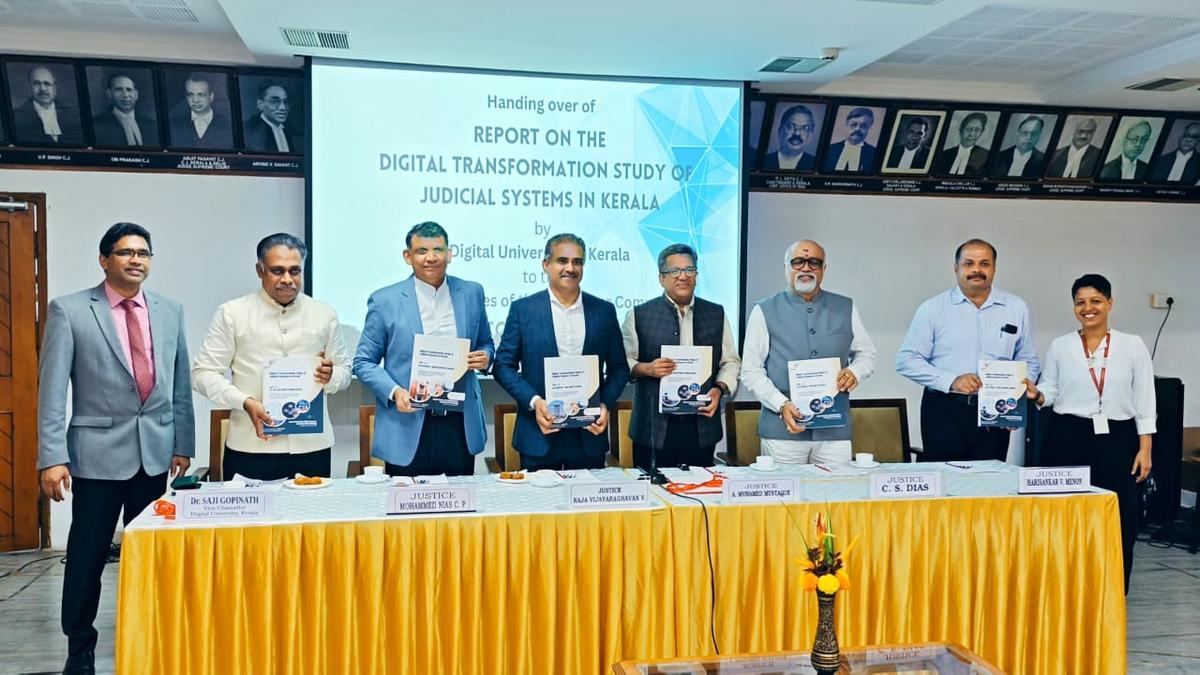
Digital University Kerala presents report on digital transformation study of judicial systems to Kerala High Court
The Hindu
Digital University Kerala presents a strategic roadmap for Kerala's judicial digital transformation, focusing on technology and efficiency.
Digital University Kerala (DUK) has presented a comprehensive report on judicial digital transformation to the Kerala High Court, outlining a strategic roadmap for the complete digitisation of state’s judicial systems.
DUK Vice-Chancellor Saji Gopinath presented the report to Justice A. Muhamed Mustaque, the Chairman in Charge of Computerisation, Kerala High Court, recently.
Emphasising the importance of the ongoing collaboration, Justice Mustaque cited successful partnerships in countries like Brazil that work with public universities to develop innovative software solutions for courts. Dr. Gopinath emphasised the report’s focus on harnessing cutting-edge technology to streamline the judicial process, reduce case pendency and optimise case management workflows. Justices Raja Vijayaraghavan V., Mohammed Nias C.P. and Harisankar V. Menon were also present on the occasion.
The study, undertaken by the DUK’s Centre for Intelligent Government, assesses the current technological infrastructure and processes within the Kerala High Court and district courts. It includes best practice evaluations through visits to other high courts and aligns with the Supreme Court e-Committee’s vision of creating a more accessible, efficient, and equitable judicial system.
The Judicial Digital Transformation study report also features recommendations on technology implementation and a tailored Functional Requirements Specification (FRS) to address the specific needs of the State’s judicial system.
The key proposals include leveraging AI and machine learning to support judges and court administrators in making data-driven decisions for scheduling and prioritising cases. The system will also feature automated fee computation, payment systems, and simplified administrative tasks to minimise manual workflows.
In view of the recommendations, the State government has granted administrative sanction for establishing a Centre of Excellence on Judicial Intelligence at the university. This centre will focus on research and the application of technologies like AI and machine learning to enhance case management, expedite justice delivery, and improve transparency in judicial processes, official sources said.













